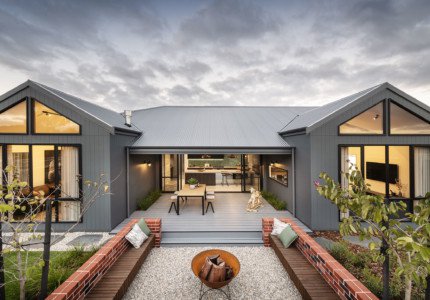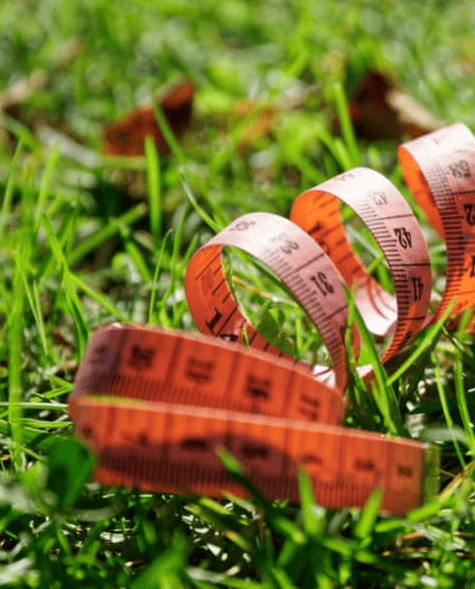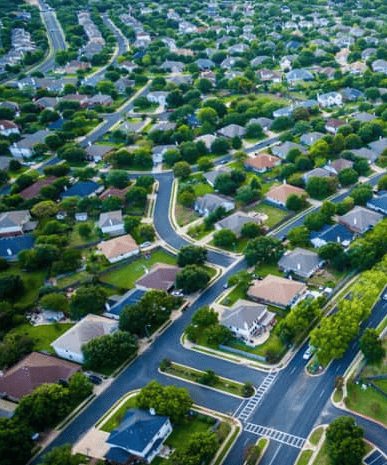
As it turns out, not all dirt is made of the same… dirt? Some soil contains ‘reactive soil’ which refers to changing moisture content. This means some slabs need to have piers (concrete poured under the slab) which helps stabilize and protect the house from sinking or buckling. This can start to become pricey depending on how many you need and how deep they need to go! Unfortunately, you can’t tell what the soil type is until you have a soil report completed (after the land is titled).
Here at Porter Davis, we have helped so many people get into their dream home (in locations all across Melbourne), so we have a great understanding on what areas have great soil (and which are potentially problematic). If you want peace of mind or one less thing to worry about, you can always consider a House and Land package!
Flat is always best when it comes to land. A block of land on the side of a cliff may have an amazing view, but it will be very costly to build on! When buying your first block of land ideally try and find something under a meter of slope. This will ensure volume builders will be able to build on it – otherwise you may need to get an architect involved.
If you want to know the slope of a block, speak to your Land Sales representative and ask for Engineering with finished levels. A Porter Davis New Home Consultant can then use that document to calculate this for you!


The size and shape of your lot will ultimately determine the type of house you can build, so this part is very important! When choosing the size of your block there are a few things to consider – do you want a big garden/backyard or are you looking for something with a smaller footprint and less maintenance? Are you near parks? (this could impact how big your backyard needs to be).
Do you want a double garage? Typically you will need a lot with a minimum width frontage of 12.5m to do this. When you find a house design you like, ensure you check the width, depth and slope of the block against the dimensions of the house. Ensure you check the dimensions of the block for setback requirements, easements or other conditions that will limit where on the block of land your house can be positioned.
Have you ever wondered why new estates look so good? Well, Developer Covenants (also known as Estate Guidelines) are to thank! When creating new communities, developers create a little rule book that each house in that estate must adhere to. These range from particular colours that can’t be used (no pink houses) to recycled water. They are rules put in place by the land developers to ensure that your asset is protected by controlling what build form is allowed within the estate.
These guidelines vary from estate to estate and land developer. It could be something simple like every house in the street needs a wooden look garage door or it can be more complex. For example, you might like a certain type of façade but they won’t allow that type of façade in the estate. Estate guidelines have to be met and they can have a cost impact on your build if what you were initially proposing does not comply.


Government legislation ensures every block of land is classified for a bushfire attack level (BAL). BAL is a means of measuring the severity of a building’s potential exposure in the event of a bushfire and includes six levels of severity, all with varying associated build costs. Your land agent will be able to confirm the applicable rating of a particular lot and your builder can advise any associated costs – these can relate to windows, flywire screens etc. BAL ratings and land identified as Bushfire Prone Areas are subject to change, but only at the discretion of the Government or the CFA, not the developer.
Simply speaking, titled land means the block is able to be built on as soon as the transfer of ownership is approved. On the other hand, untitled land is when you purchase a block off-the-plan. Generally, you will pay the developer a deposit upon signing the contract (between 5-10%), however, you won’t fully own the land until the Certificate of Title is issued in your name. Land in new estates is often untitled as blocks go on sale prior to construction commencing. If your land is untitled you should be given an estimated title date, though keep in mind this may be subject to change.


Generally, when purchasing land you require 5-10% of the purchase price for a deposit (depending on the land developer). The balance of the purchase price is not payable until the new land title is registered, often in 12-18 months time. Be sure to ask your land agent when title registration is due. Your bank or mortgage broker thoroughly understands this process and will help guide you through this. They can even organise pre-approval which can save you time in the long run.

Home Designs
House and Land
Our Offices